Did you know that the arrangement of the Old Testament in Christian Bibles is not the original order? Along with all ancient Jewish people, Jesus encountered the Scriptures as a three-part collection of scrolls known as the Torah, Nevi’im, and Ketuvim, or together, TaNaK. Explore why this ancient order matters and how it illuminates the unified story of the Old Testament.
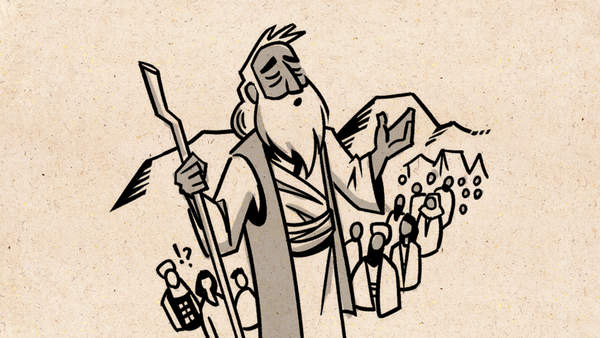
Old Testament Overviews
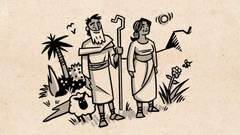
TaNaK / Old Testament
Did you know that the arrangement of the Old Testament in Protestant Christian Bibles is not original? Along with all ancient Jewish people, Jesus encountered the Scriptures as a three-part collection of scrolls known as the TaNaK, an acronym for the three large subcollections of the Hebrew Bible: Torah (Law), Nevi’im (Prophets), and Ketuvim (Writings).
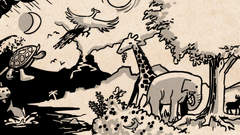
Genesis 1-11
In chapters 1-11, the book of Genesis recounts God’s good world and humanity’s repeated rebellion. How will God restore blessing to the world? We find the answer in the family of Abraham.
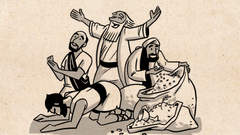
Genesis 12-50
Through Abraham’s family, God promises to bless all nations. Genesis follows four generations of human failure set against God’s continued faithfulness. As Joseph says, “You planned this for evil, but God planned it for good” (Gen. 50:20). The book ends with the promise of a future king who will restore blessing to the nations.
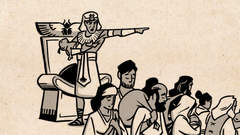
Exodus 1-18
How does God respond when his people cry out to him? The first part of the book of Exodus recounts a powerful confrontation between God and the unjust Pharaoh. This section is a fast-paced narrative that leads to divine justice, rescue, and deliverance.
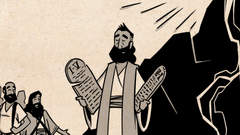
Exodus 19-40
The first part of Exodus shows God freeing Israel from Egypt. Then, at Mount Sinai, Moses receives God’s law, but Israel breaks the covenant. Moses pleads with God, who renews his promises. After the tabernacle is built, God’s glory fills it, but Moses can’t enter due to his own rebellion.
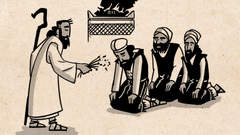
Leviticus
God made a covenant with Israel and brought his own presence to dwell with them. However, Israel cannot enter his presence because of their corruption. In response, God introduces a set of sacrifices, the priesthood, and purity laws in the book of Leviticus.
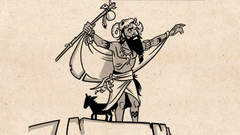
Numbers
The book of Numbers tells the story of Israel’s repeated rebellion in the wilderness and how it is met by God’s justice and mercy. God responds with short-term severity and long-term generosity that speaks to his covenant faithfulness.
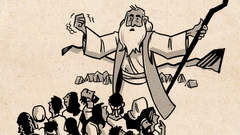
Deuteronomy
In the book of Deuteronomy, Moses gives Israel final words of warning and blessing. He covers the story so far, a collection of laws, and a charge for Israel to listen and obey rather than rebel. Moses knows the people well enough to know they will eventually choose rebellion, yet Moses looked forward to their promised hope.
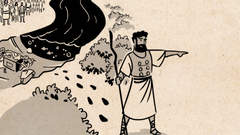
Joshua
The book of Joshua shows us God’s covenant faithfulness to bring the Israelites into the land he promised Abraham. This book points to the importance of covenant obedience before, during, and after God fulfills his promises.
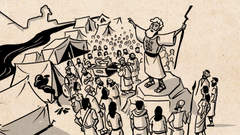
Judges
After the death of Joshua, the people of Israel begin a downward spiral.The book of Judges highlights six judges and their increasing corruption during this time. The central verse that summarizes this says, “In those days Israel had no king, and everyone did what was right in their own eyes.”
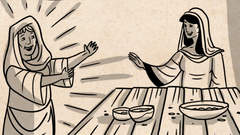
Ruth
The book of Ruth follows Naomi, her Moabite daughter-in-law, Ruth, and the farmer Boaz during the time of the judges. Though God is rarely mentioned directly, he works through their everyday faithfulness. Their story of tragedy turned to joy becomes part of the line of King David and ultimately the Messiah.
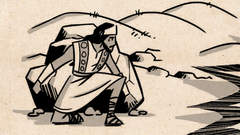
1 Samuel
The book of 1 Samuel focuses on three characters: Samuel, Saul, and David. A poem near the start of the book reveals the book’s key themes: God’s opposition to the proud, exultation of the humble, faithfulness in spite of evil, and the promise of a messianic king.
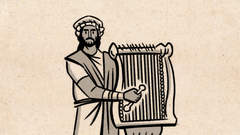
2 Samuel
The book of 2 Samuel continues to show us the virtue of humility, the destructiveness of pride, and the faithfulness of God’s promise. We see David succeed and fail, and we see God’s promise for a future king at the beginning and end of the story.
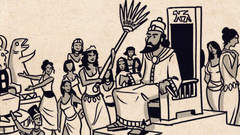
1 & 2 Kings
Known as 1 and 2 Kings in English Bibles, the book of Kings recounts the rule of Israel's kings from David's son Solomon up until the time of Israel's exile.
The question at the center of this book is: Will God's promised Messiah come to rescue Israel in spite of their failures?
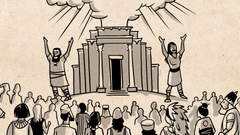
Ezra-Nehemiah
This book recounts the people’s return from exile and the rebuilding of the temple in Jerusalem. Nehemiah rebuilds the walls, and Ezra, a descendant of Aaron, arrives in Jerusalem later and instills God's laws to the post-exile generation.
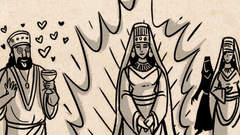
Esther
Though God is never mentioned in the book of Esther, we can see clearly that he is at work behind the scenes, ensuring that Haman’s plot to destroy the Jewish people is thwarted.
Reading Esther reminds us that even when it seems like God is absent, he is still at work in our lives and will not abandon his promises.
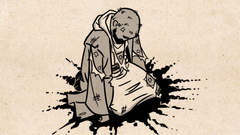
Job
Job, his wife, and his friends continually speculate on why an upright man like Job might experience so much suffering. God reminds Job that the world has order and beauty but it is also wild and dangerous. While we do not always know why we suffer, we can bring our pain and grief to God and trust his wisdom.
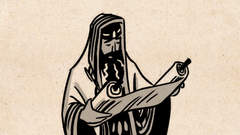
Psalms
The book of Psalms is a carefully designed collection of poetry that communicates key ideas about God’s character. It’s a book made for a lifetime of careful contemplation, where we can learn about the importance of prayer and the acknowledgment of pain, as well as the power of praise and fulfillment of prophecy.
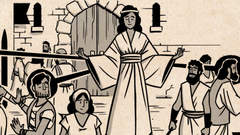
Proverbs
Linked to Solomon and other wise men, the book of Proverbs includes hundreds of short, clever sayings designed to teach us how to live and act wisely. Each saying touches on a common area of life and shows us what it looks like to live well in God’s good world.

Ecclesiastes
The book of Ecclesiastes is the author’s response to Proverbs. From their perspective, life isn’t so simple as fearing God and choosing wisdom. Life is unpredictable, and our existence is a blip of time. In their words, “it’s all hevel,” meaning temporary or fleeting. So is there any point at all? Yes, but it may surprise you.
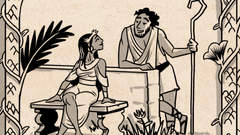
Song of Songs
Song of Songs, also known as the Song of Solomon, is not technically a book. It’s a love song between two lovers—and it works on two levels. Song of Songs is celebrating human’s desire for intimacy and pointing to humanity’s ultimate purpose: to be united with God and his wisdom.
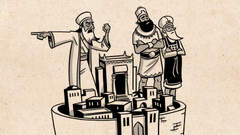
Isaiah 1-39
The book of Isaiah is filled with sobering accounts of Israel’s sin and rebellion and warnings of their coming judgement. But along with warnings, Isaiah also offers a message of hope—a suffering servant, a Messiah, will come to establish God’s Kingdom on Earth and create a new Jerusalem.
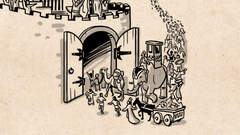
Isaiah 40-66
Isaiah calls for Israel and the surrounding rebellious nations to repent and turn to God, warning of the judgment that will come if they do not. But Isiah’s message is not without hope. He continually points to a coming servant, Immanuel, who will establish a new Israel and bring God's Kingdom to Earth.
Jesus reads from the scroll of Isaiah and declares that the book’s messianic promises were being fulfilled in him.
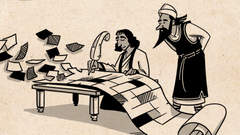
Jeremiah
The prophet Jeremiah announced that God would judge Israel’s sins with exile to Babylon. And then he lived through the horror of his predictions. The book of Jeremiah shows a graphic but important picture of how disobedience leads to destruction.
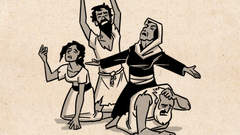
Lamentations
Lamentations is a collection of poems detailing Israel’s grief after Jerusalem’s destruction, which was caused by their rebellion against God. In these laments, the people confess sins and seek restoration, showing us that expressing our distress to God is an appropriate response to suffering.
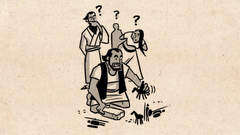
Ezekiel 1-33
Ezekiel is a prophet living in exile in Babylon. Ezekiel boldly speaks God’s message of Israel’s rebellion and makes clear that this exile is punishment for their covenant unfaithfulness.
God's presence being revealed to Ezekiel demonstrates that holiness has nothing to do with geographical location—it’s about the condition of the heart. God is moved by the faithfulness of men like Ezekiel, who became his priest not because of status but because of his faith in dark circumstances. His example is a model for believers everywhere.
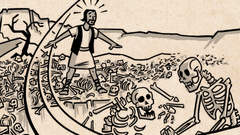
Ezekiel 34-48
Ezekiel is a prophet living in exile in Babylon. God’s presence being revealed to Ezekiel demonstrates that holiness has nothing to do with geographical location—it’s about the condition of the heart. God is moved by the faithfulness of men like Ezekiel, who became his priest not because of status but because of his faith in dark circumstances.
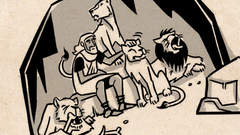
Daniel
The book of Daniel is apocalyptic literature that includes several strange visions that point to the coming Son of Man, the messianic King who will deliver Israel and the nations. Daniel is also about hope and faith in the midst of exile, as Daniel remains faithful to Yahweh and hopeful for the restoration of Israel.
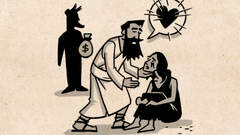
Hosea
In the book of Hosea, God sends Hosea to Israel during the reign of King Jeroboam II to communicate God’s despair over their perpetual idol worship and dependence on outside nations. Though the people have failed to be faithful covenant partners to God, his commitment to them remains.

Joel
The prophet Joel speaks about the Day of the Lord, a day when evil empires will be brought low and God’s people will be finally delivered from corrupt human systems. Though Israel’s sin is never specifically mentioned in the book, Joel is clear that God will not allow evil to continue wreaking havoc on his good world.
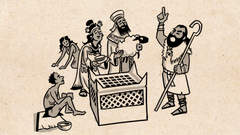
Amos
God calls a Judean shepherd named Amos to confront the wrongdoing of the people of Israel, offering them one more chance before they face God’s judgement. God is grieved by the evils he sees the people of Israel doing, but he mercifully offers them another chance to change their ways.
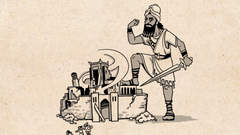
Obadiah
The book of Obadiah may be small, but it packs a powerful punch against the arrogance of Edom and other ungodly nations. Through Obadiah, God declares judgment over Edom and prophesies that they will be erased from history. Babylon overtook Edom 100 years later, and they never recovered.

Jonah
The book of Jonah poses fascinating questions for us to ponder. Do we truly forgive and love our enemies? And do we run from God when faced with our failures? By examining ourselves through Jonah’s story, we can learn to trust God in his decisions and give all our concerns to him, knowing that he desires to save every individual and reunite with them forever.
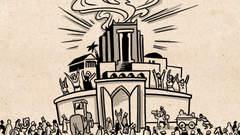
Micah
The prophet Micah describes God’s coming judgment on Israel because it has exploited the poor and twisted the laws of the Torah. But Micah’s prophecies are not without hope. The God of Israel is also faithful and full of mercy. God promises to preserve a faithful remnant, from which he will create a new Jerusalem on the other side of sin and exile.
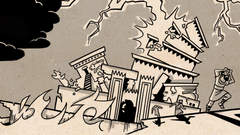
Nahum
The book of Nahum is a collection of poems announcing the downfall of some of Israel’s worst oppressors. Referencing Daniel, Exodus, and Isaiah, Nahum shows us that the destruction of Nineveh and Assyria are examples of how God works in history in every age.
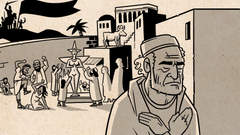
Habakkuk
Throughout the book of Habakkuk, we see that Babylon is an example of any nation that exalts itself above God and practices injustice, violence, and idolatry. In the end, God reminds Habakkuk and every generation that God will deal with evil. We can continue to love and trust his timing and plan as we remain faithful to him.
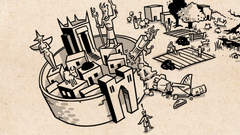
Zephaniah
The book of Zephaniah contains intense images of God’s justice and hope. Zephaniah warns Israel and the surrounding nations that God will judge the nations with a burning fire as he purifies them from sin, evil, and violence. But this purification will open up a new future where all of humanity can flourish.
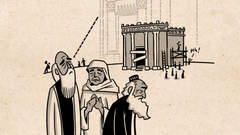
Haggai
Haggai challenges the returning exiles to remember their covenant, remain faithful to God, and build the temple before constructing their own homes. They can be encouraged by God’s promise to build a new Jerusalem, defeat evil, and live in their midst. Future prophetic books contain more details about when these promises will be fulfilled.
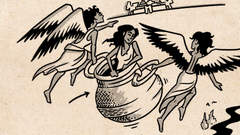
Zechariah
The book of Zechariah contains a series of dream visions filled with bizarre images. And even though the book doesn’t follow a neat, orderly pattern, it shows God’s hand guiding history toward his purposes. We can look above the chaos and hope for the coming of God’s Kingdom, which will motivate faithfulness in the present.
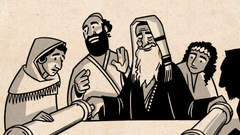
Malachi
The book of Malachi is a stark indictment of Israel’s rebellion, but it offers a surprising message of hope too. Even after years of rebellion and exile, God has not abandoned Israel. God promises to defeat evil and purify a faithful remnant, establishing a new Jerusalem and bringing peace, healing, and justice forever.
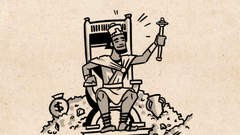
1 & 2 Chronicles
As the last book in the Hebrew Bible, Chronicles invites its readers to explore the stories of each section, revealing interesting details about David, Solomon, God’s temple, and the kings of Judah. The book ultimately leaves the reader waiting for the promised Messiah, who will restore Israel to their covenant partnership with God.
